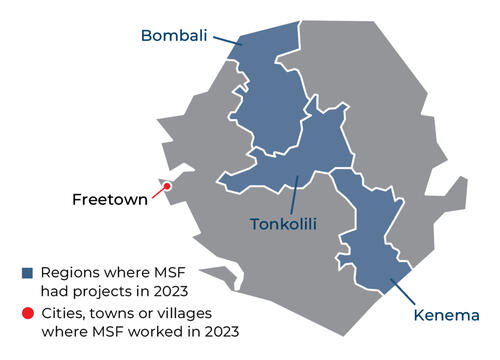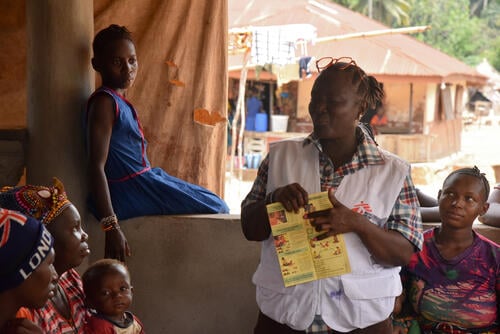In Kenema district, Eastern province, we run a hospital providing specialist medical care for pregnant women, lactating mothers and children under the age of five. In addition, we support six general healthcare facilities across the district with training, donations of medical supplies, patient referrals and physical rehabilitation services.
In 2023, we also started to operate a mobile clinic to serve remote communities in the province. In addition to medical consultations and vaccinations for children under five, the clinic offers family planning and antenatal care, and organises referrals for patients requiring specialist services.
In Tonkolili district, Northern province, we work with the Ministry of Health in Mile 91 and the surrounding villages, as well as in Magburaka town. In Mile 91, our teams support 12 general healthcare centres with the aim of reducing maternal and child deaths. In Magburaka town, we focus on specialist healthcare and support the district hospital’s maternity, paediatric, neonatal and nutrition wards. We also support ambulance referrals from peripheral healthcare facilities to the hospital.
In both of these projects, our teams assist with community-based treatment for malaria, medical and psychosocial support for victims and survivors of sexual violence, prevention of mother-to-child transmission of HIV, and family planning. In partnership with the Ministry of Health, we also run adolescent-friendly centres, which offer sexual and reproductive healthcare.
In Bombali district, we work with the ministry to increase access to TB treatment, including drug-resistant TB (DR-TB), for both adults and children. In 2023, patients continued to receive the shorter treatment regimen for DR-TB introduced by MSF, which has proved to be more effective and has fewer side effects.












